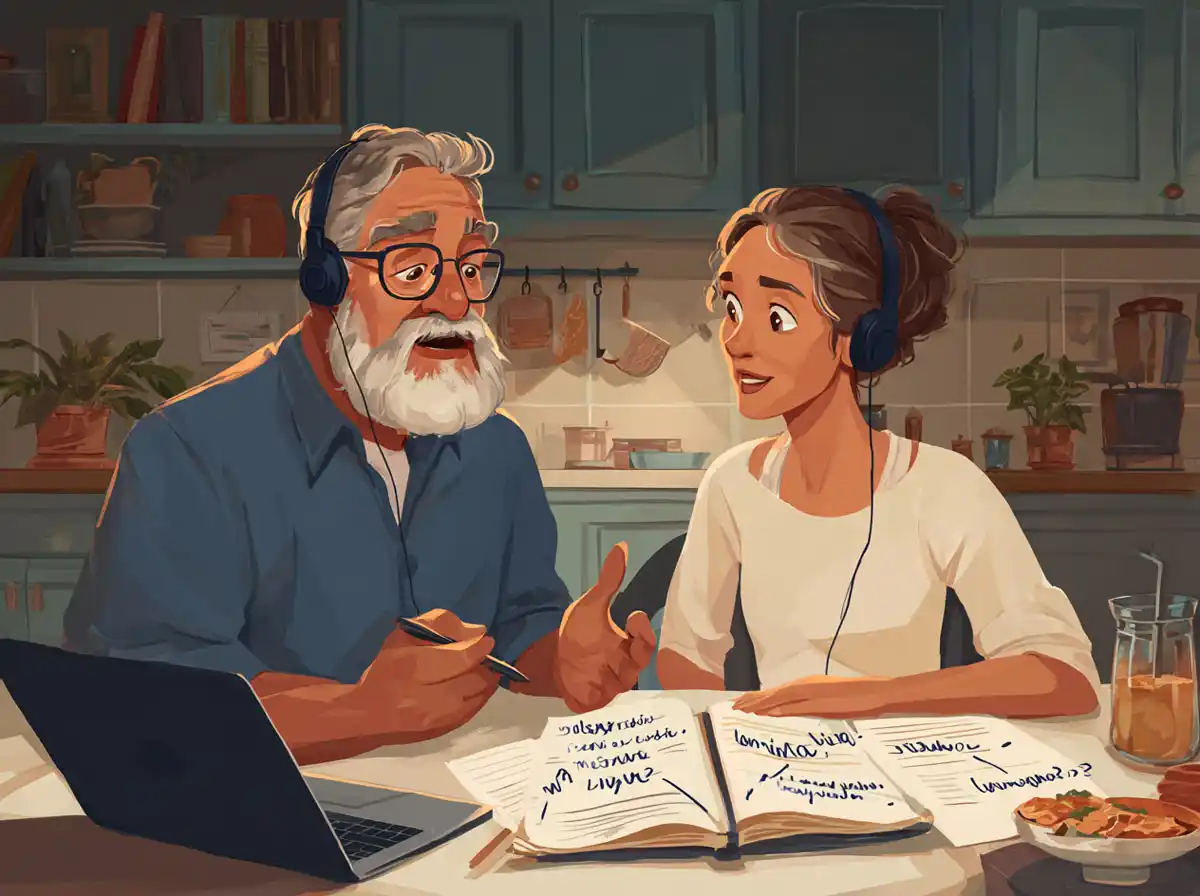In this article, we’ll learn about the parts of the body and common health conditions in Belarusian. This vocabulary is fundamental for everyday communication, whether you need to use it at the doctor’s office, in describing how you feel, or when talking about people’s physical features.
Галава (Halava) – Head
The head is the upper part of a human’s body which includes the brain, eyes, ears, nose, and mouth.
Яна пачула баль у галаве, пасля доўгага працоўнага дня. (She felt a headache after a long day at work.)
Вочы (Vochy) – Eyes
Eyes are organs of vision that detect light and allow us to see.
У яго светлыя вочы з шэрай зялёнасцю. (He has light eyes with a hint of grey-green.)
Вушы (Vushy) – Ears
Ears are the organs of hearing and balance.
Яна носіць серабряныя сер’гі ў вушах. (She wears silver earrings in her ears.)
Нос (Nos) – Nose
The nose is the part of the face that protrudes and houses the nostrils.
Яго нос быў чырвоным пасля таго, як ён прабываў на маразе. (His nose was red after he was out in the cold.)
Рот (Rot) – Mouth
The mouth is the opening in the face used for consuming food, breathing, and speaking.
Яна сказала словы, але яе рот калыхнуўся толькі шэптам. (She spoke the words, but her mouth moved only in a whisper.)
Сэрца (Sertsa) – Heart
The heart is an organ that pumps blood through the circulatory system.
У яго сэрцабіццё паскорылася ад хвалявання. (His heartbeat quickened with excitement.)
Каштоў (Kashtow) – Cough
A cough is a sudden and often repetitively occurring reflex to clear the large breathing passages.
У яе быў сухі каштоў увесь дзень. (She had a dry cough all day long.)
Грып (Gryp) – Flu
The flu is a common viral infection that can be deadly, especially in high-risk groups.
Медыцынская сястра папярэдзіла, што сёлета грып асабліва заразны. (The nurse warned that this year the flu is particularly contagious.)
Прастуда (Prastuda) – Cold
A cold is a viral infectious disease of the upper respiratory tract that affects the nose primarily.
Ён застудзіўся і цяпер пакутуе ад прастуды. (He caught a chill and is now suffering from a cold.)
Галавакружэнне (Halavakruzhennye) – Dizziness
Dizziness is the sensation of instability or losing balance.
Пасля ўстаўлення я адчуў галавакружэнне. (After standing up, I felt dizziness.)
Тэмпература (Temperatura) – Fever/Temperature
A fever is when a human’s body temperature goes above the normal range due to illness or infection.
Яна прачнулася ўночы з высокай тэмпературай. (She woke up in the middle of the night with a high fever.)
Алергія (Alergiya) – Allergy
An allergy is a hypersensitivity disorder of the immune system to something in the environment.
Ён адчувае сябе паскудна ўсе вясну з-за алергіі. (He feels miserable all spring because of allergies.)
Learning these essential Belarusian words related to body parts and health conditions will help you describe physical characteristics and talk about basic health issues you might experience. It could also be incredibly helpful in medical situations where clear communication is crucial. Remember, practice makes perfect, and these vocabulary words are a great start to build your Belarusian language skills.










